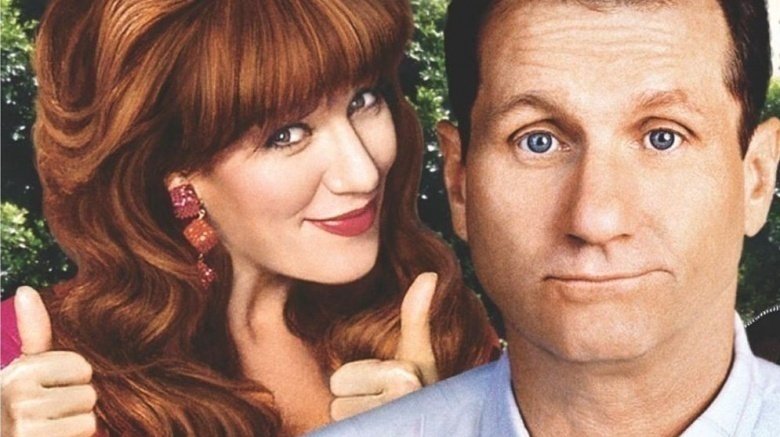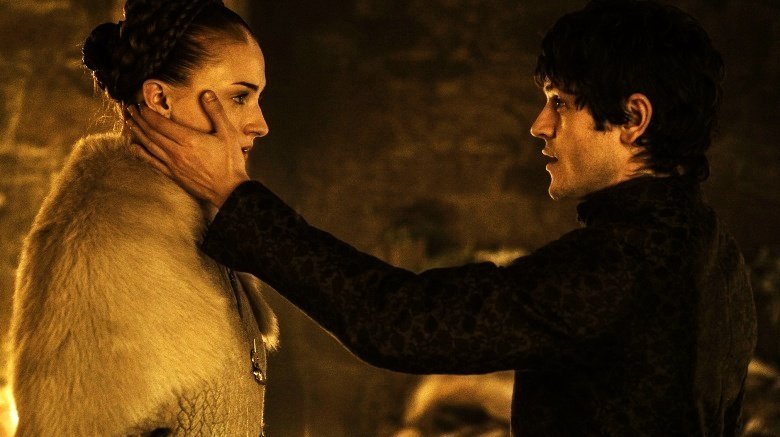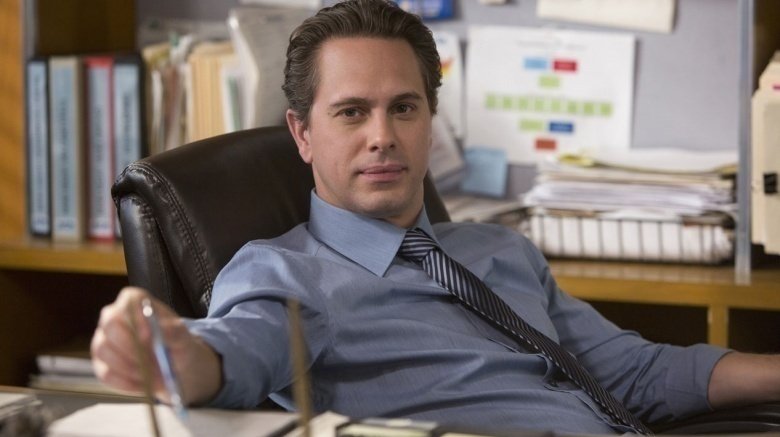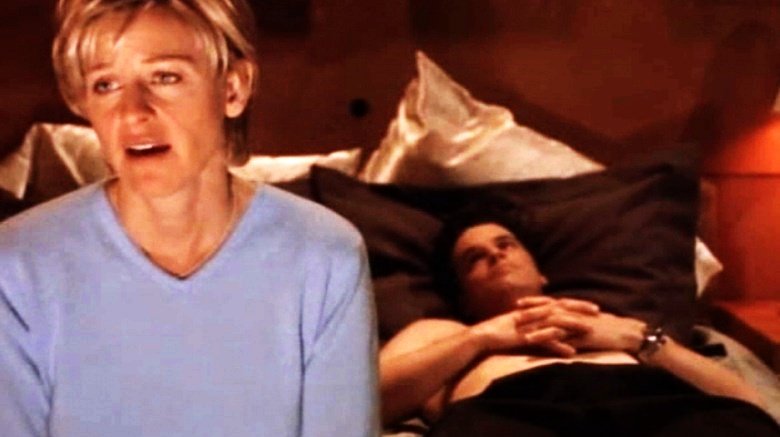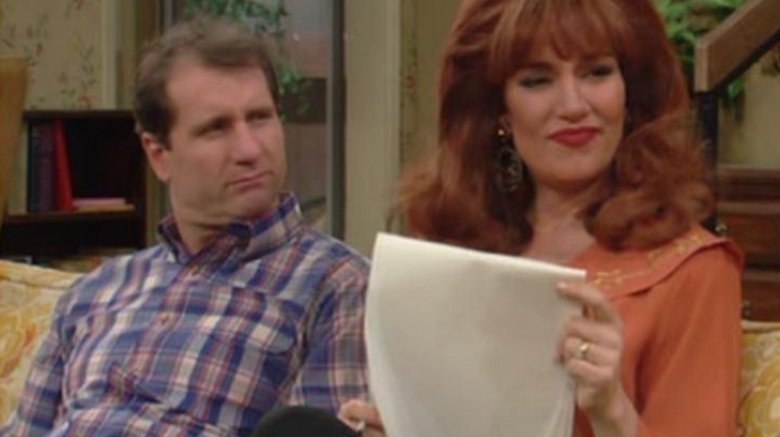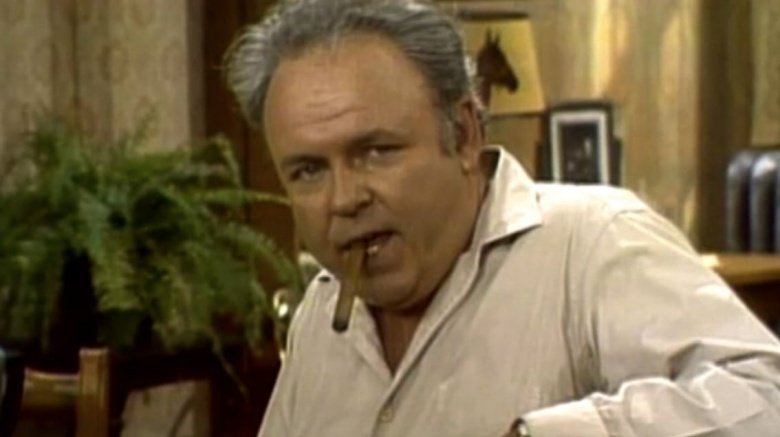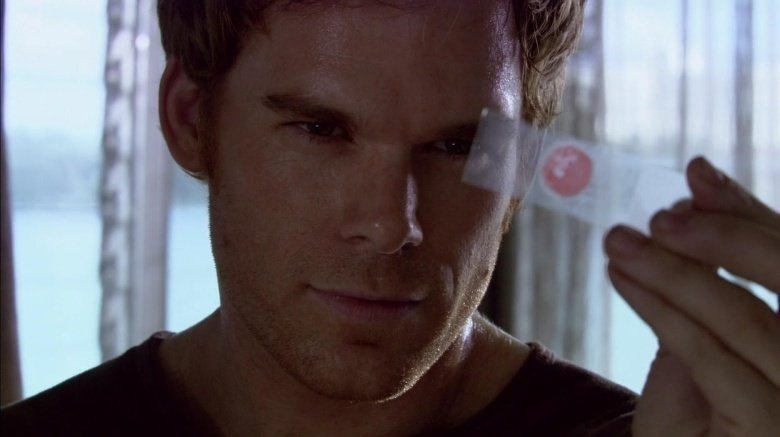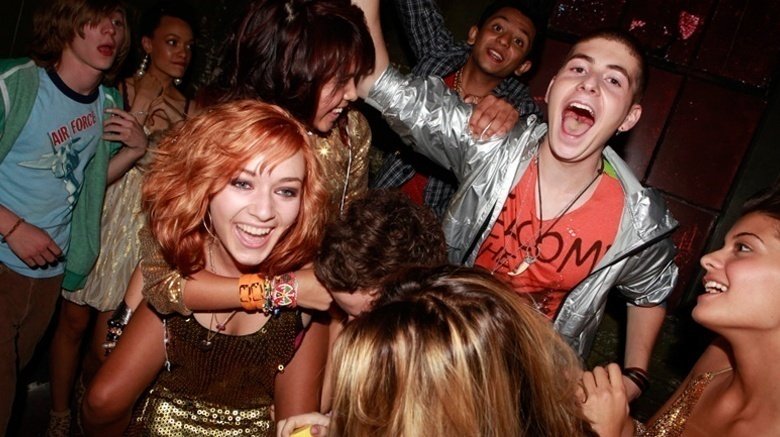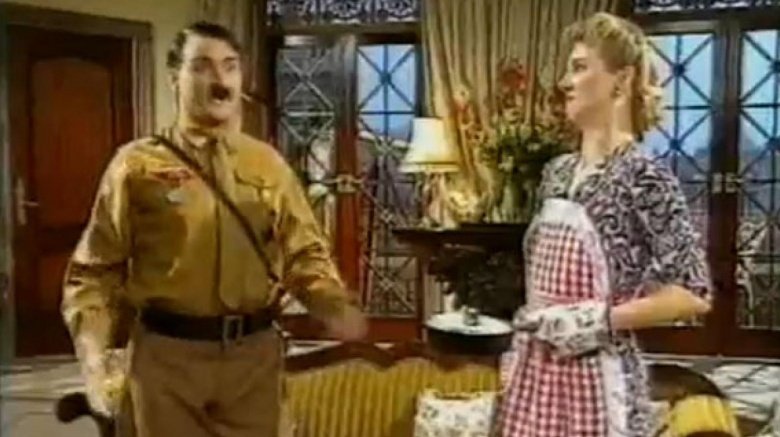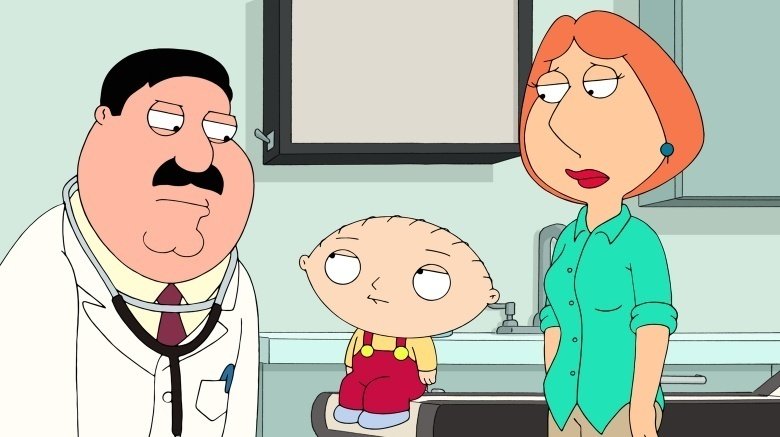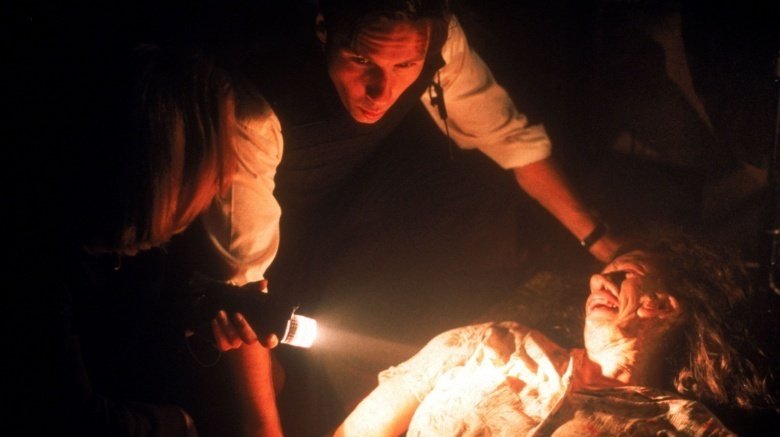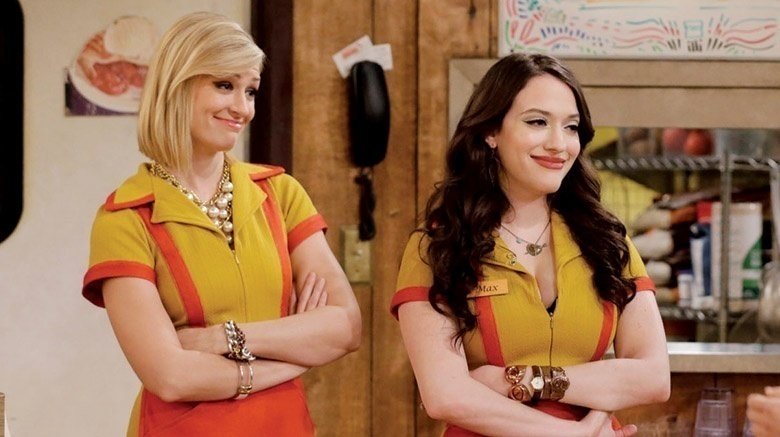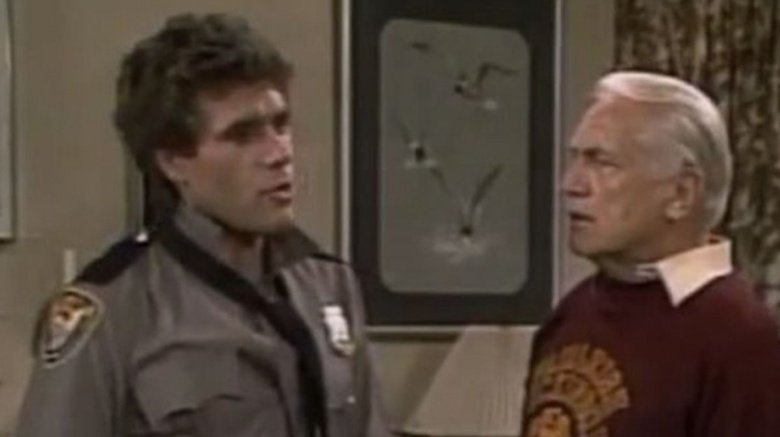Highly Controversial TV Moments
Networks will put just about anything on television these days. From a naked dating show to documenting a woman's 600 pound life, nothing is too outrageous for viewers anymore. The more extreme the better—and if you want some serious bonus points, throw in some shocking storylines. Throughout television history, there have always been those moments and characters that were extra controversial. Here are a few of the most memorable.
Game of Thrones - Sexual assault
Game of Thrones is no stranger to controversy, but one season five scene left fans calling for a boycott. Sansa Stark, played by Sophie Turner, was sexually assaulted on her wedding night by her new husband Ramsay Bolton—who also forces Sansa's childhood friend, Theon Greyjoy, to watch from the corner. Tough to watch? Yes. Tough to act out? Apparently not. "I kinda loved it... It was all so messed up," Turner revealed to Entertainment Weekly.
The Newsroom - Campus rape
In HBO's The Newsroom, Don, played by Thomas Sadoski, went to a college campus to pre-interview a female student who had created a website to out rapists anonymously after she was raped herself. Don is supposed to find out more information about the woman, but he ends up discouraging her from going on his news show to tell her story and debate her attacker. This led to an attack on series creator, Aaron Sorkin, and his stance on the issue. According to The New York Times, viewers felt Sorkin was victim-blaming women and showing more concern about the after-effects of a man who was wrongly accused of rape.
Sons of Anarchy - Elementary school shooting
There are a lot of over-the-top, gruesome, 'is this really happening' scenes in Sons of Anarchy. But when a young boy brings a KG-9 machine gun to his elementary school, opening fire on his classmates and teachers—that's when fans thought the show really crossed a line. The episode aired just nine months after the Sandy Hook Elementary School shooting. While the Sons scene hit a little too close to home, series creator Kurt Sutter insisted the storyline was really "the catalyst for the final act of our morality play."
Ellen - The coming out episode
In April 1997, Ellen DeGeneres and her sitcom, The Ellen Show, changed television history when her character, also named Ellen and based on herself, came out on national television. Even though she'd only publicly come out a few days earlier in Time Magazine, it was still a risky move for the late '90s. Only a handful of scripted shows starred gay characters, and the approval rating for gay marriage was at a low 27 percent. Advertisers reportedly started pulling their ads from the show, although only Chrysler admitted to it, citing a corporate policy to avoid controversial clients. While it wasn't the popular thing to do at the time, Ellen said she didn't do it to make herself a standard-bearer for the gay community—she just had to do it for herself.
Married... With Children - Al and Peg Bundy's relationship
When Married... with Children premiered in 1987, the Bundy family was very different than the picture-perfect clans America was so used to seeing. Al and Peg weren't afraid to call out each other's flaws. Al constantly called Peg a horrible housewife, mother, and cook, while Peg was there to let her husband know just how inadequate he was as the man of the house. For one Michigan woman, Terry Rakolta, this relationship was not even close to being acceptable. In 1989, Rakolta started a letter-writing campaign encouraging viewers and advertisers to boycott the show after an episode showed Al and Steve searching for a bra at a store whose motto was, "If you've got the boulders, we've got the holders."
All in the Family - Archie Bunker
All in the Family was that realistic look into the '70s blue-collar lifestyle that some Americans had never seen before. The show covered many hot-button issues like sex, politics, and race—but there was one controversial character who topped it all: Archie Bunker. Archie was a bigot, prejudiced against anyone who wasn't born in America, and disregarded anyone who did not agree with his conservative ideals. With his blatant sexism and frequent use of racial epithets, Bunker always seemed to be pushing the envelope just a little bit more in every episode.
South Park - Showing an image of the Islamic Prophet Muhammad
South Park is not afraid to "go there." But when the show's creators, Matt Stone and Trey Parker, tried using an image of the Islamic prophet Muhammad, it was like all hell broke loose. Prior to the episode airing on Comedy Central, the network banned the showrunners from using a visual of the prophet, which was reportedly due to safety concerns. This did not make Stone or Parker happy campers, so rather than showing a picture of Muhammad, they posted a message onscreen reading, "Comedy Central has refused to broadcast an image of Muhammad on their network."
Dexter - Inspired real-life murders
In January 2014, 21-year-old Englishman Mark Howe was found guilty of the murder of his mother after a jury determined he had slipped into her bedroom late at night and used a 12-inch knife to slash her more than 50 times around the face, throat and chest. He dumped the weapon and claimed to know nothing of the attack, but it soon became clear that Howe was not only guilty, but that he had been inspired to commit the murder by a TV show. An examination of his internet history revealed that he searched for "Dexter's kill knife" as well as "what does a sociopath need to do to blend in seamlessly with society," underlining his fascination with the TV serial killer and creating a debate over whether the show should be taken off the air.
It wasn't the first murder to be blamed on Showtime's hit crime drama. In 2008, aspiring Canadian filmmaker Mark Twitchell (who had been going under the name Dexter Morgan on Facebook) lured two men to his home under the pretense of making a horror film about a sword-wielding mass murderer. Twitchell killed one of the men; the other managed to escape. Dexter has had female mimickers too, the most notorious being S&M practitioner Jessica Lopez, who strangled a woman and attempted to "chop her up" like the show's protagonist.
Seinfeld - Puerto Rican Day Parade
Seinfeld was always a show that wasn't afraid to push the boundaries of good taste in search of a laugh, though one episode "crossed the line between humor and bigotry" according to Bronx Borough President Fernando Ferrer. He was one of numerous viewers of Puerto Rican heritage to be offended by a plot that saw the main characters caught up in a traffic jam caused by the Puerto Rican Day Parade.
Jerry, Elaine, George and Kramer come to a halt on their way back from a Mets game and waste no time in angering those enjoying the parade. Kramer accidentally sets a Puerto Rican flag on fire with a sparkler and then proceeds to stomp it out on the ground, causing angry bystanders to toss their car down a stairwell. "It's like this every day in Puerto Rico," proclaims Kramer.
Both the comment and the flag-burning provoked outrage, with Manuel Minabel, president of National Puerto Rican Coalition, calling it an "unquestionable insult" to the country and demanding an apology from NBC. The network quickly complied.
Skins (U.S.) - The Viagra episode
When U.K. television shows are remade for American audiences, it isn't uncommon to hear complaints that the British did it better. While reworking Skins' third episode "Chris," the writers of the MTV-produced U.S. reboot decided the best way to go was to copy the original shot for shot, though in doing so they inadvertently caused a child pornography controversy.
The episode in question features a 17-year-old boy ingesting a large dose of Viagra and running down the street with his erection on show to the world (though only his behind is visible to the viewer)—which U.K. producers could get away with, seeing as how the age of consent in Britain is 16. This isn't the case in the States.
The Parents Television Council was quick to react, insisting that the Department of Justice open an investigation into what they deemed the exploitation of minors on Skins. Fearing they would be breaking federal child pornography statutes by airing the episode, MTV executives relented and ordered it to be changed.
Heil Honey I'm Home! - Hitler as sitcom star
Some of Britain's greatest exports have been created at the UK's famous Pinewood Studios, from entries in the long-running James Bond franchise to the hugely successful Harry Potter series. Not everything that comes out of the world renowned Buckinghamshire studio is guaranteed to be a success, however, and one of the most unusual British sitcoms of all time is proof.
Geoff Atkinson's Heil Honey I'm Home! was supposed to follow a re-imagined version of Adolf Hitler and his partner Eva Braun as they deal with living next door to fictional Jewish couple Arny and Rosa Goldenstein, though the show fell right out of the gate. The Board of Deputies of British Jews labelled the sitcom antisemitic, and the now-defunct Galaxy channel was forced to pull it after just a single pilot episode.
The show is often ranked among the most tasteless ever created, but Atkinson has always insisted his intentions were misunderstood. After Heil Honey I'm Home! was unceremoniously canceled, its creator argued, "Sometimes you can destroy bullies by laughing at them. This isn't about denying what happened, it's about being human in the face of inhumanity."
Family Guy - The abortion episode
Family Guy is another show that has invited accusations of antisemitism thrown at it in the past, though season 3 episode "When You Wish Upon a Weinstein" struck a particular nerve with a number of viewers. The episode (in which Peter kidnaps a stranded Jewish man and sets him to work handling his money) was finally aired on Fox four years after the rest of the season, though the network refused to relent when it came to season 8 finale "Partial Terms of Endearment."
The so-called "abortion episode" was made but rejected, with Fox exercising their right not to air it and instead releasing it as a standalone DVD that played on the episode's notoriety. It was a decision that creator Seth MacFarlane saw as a copout aimed at placating conservative viewers. "Times really have changed," he argued. "The network is making a decision that is, unfortunately, probably based on people's current ability to handle and dissect controversial narratives."
The X-Files - Incest episode
Family Guy isn't the only Fox show that has fallen victim to the network's censorship rules. Classic sci-fi series The X-Files also had an episode banned for inappropriate content, with the taboo topic in this instance being incest. "Home" was the first ever X-Files episode to begin with a viewer discretion warning and remained the only one to carry a TV-MA rating, which it most certainly deserved.
The episode opens with a baby being buried, a shot that director Kim Manners described as the "most awful" of his career. From there the plot follows Mulder and Scully as they investigate a secluded farmhouse after an abandoned baby is found nearby, and what they discover are three brothers, the younger two fathered by the eldest via their mother. Fox removed the episode from syndication and only repeated it once as part of a 1999 Halloween special, advertising it as "an episode so controversial, it's been banned from television for three years."
2 Broke Girls - graphic content
Screenwriter Michael Patrick King certainly never shied away from using language that many would consider crude during his time working on Sex and the City, though he seems to have been saving his most colorful work for his own show, 2 Broke Girls. The CBS sitcom follows the exploits of two New York waitresses as they attempt to start their own cupcake business, but many viewers find the pair far from sweet.
A Freedom of Information request revealed in detail the nature of the complaints sent to the FCC about the show's content, with one concerned mother urging the authorities to review an episode that depicts naked dolls being manipulated into graphic sexual acts. She wasn't the only complainant looking for the primetime show to be censored; in fact, one Texas viewer urged a complete review of TV censorship laws. "From constant comments about sexual positions and ejaculation in every orifice to menstrual cycles in much more vulgar terms, 2 Broke Girls is unrelenting," reads their complaint. "I don't know when TV censorship died in this country but we need it back."
The Simpsons - Blamed by Rio
Unlike South Park and Family Guy, The Simpsons ordinarily takes a more subtle approach to lampooning its targets, which, for the most part, lie in middle America. One of the few times they poked fun at another nation almost wound up causing a diplomatic incident.
The episode "Blame it on Lisa" (a play on the title of 1984 film Blame it on Rio) saw the Simpsons head to Brazil in search of an orphan that Lisa has been sponsoring, though the family get themselves in all manner of trouble upon arrival. Homer is kidnapped by a rogue cabbie, he and Bart are mugged by children, and the pair are also attacked by monkeys—all of which "brought a distortion of Brazilian reality" to the screen according to the country's president at the time, Fernando Henrique Cardoso.
The Rio tourism board also chipped in on the debate over the episode, claiming that the $18 million it had recently spent on promoting the city in the States was now wasted and that the airing of the episode would have "drastic consequences" for travel to the city.
Too Close for Comfort - Monroe's rape
Too Close For Comfort was a 80s sitcom based on British show Keep It In The Family, created specifically for Mary Tyler Moore co-star Ted Knight. It premiered on ABC in 1980 with Knight in the role of San Franciscan Henry Rush, a highly strung cartoonist living with his wife, two daughters and a male lodger named Monroe, who was the focus of controversial 1985 episode "For Every Man, There's Two Women."
The episode begins with Monroe (Jim J. Bullock), a hapless man-child and the butt of most of the jokes in the house, stumbling through the door with his work uniform in tatters. He reveals that he was kidnapped by two women, who threw him in the back of a van and "helped themselves" to him as he "cooperated all night." Monroe is told by a detective to forget it happened, as the courts wouldn't believe that a man could be raped by a woman, anatomically speaking.
Originally produced for the fourth season but not appearing until the fifth, this episode largely escaped notice, existing as little more than a legend after production on the show ceased until someone ripped a rerun in 2011 and uploaded it to YouTube. The retrospective criticism was widespread—not only for its take on male rape, but for its tongue-in-cheek debasement of an actor quite clearly in the closet.
